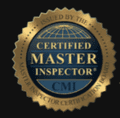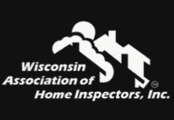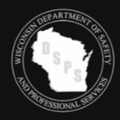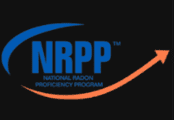 Close friends of ours had a home inspection performed by yours truly not long ago. My wife called them yesterday to discuss a get together. During the conversation, she learned they had a leak from a propane tank that prompted a fire to the wood fence surrounding the tank. The family was home at the time and fortunately no one was hurt, and the damage did not extend to the 7-figure home.
Close friends of ours had a home inspection performed by yours truly not long ago. My wife called them yesterday to discuss a get together. During the conversation, she learned they had a leak from a propane tank that prompted a fire to the wood fence surrounding the tank. The family was home at the time and fortunately no one was hurt, and the damage did not extend to the 7-figure home.
a leak from a propane tank prompted a fire
to the wood fence surrounding the tank
There’s a link below to an article written by a home inspector who, I feel did an exemplary job of describing a limitation of what is included in a home inspection regarding gas testing.
I’m writing this for our readers and for them to share with their friends and family.
I understand that whether someone is a first-time home buyer or not, we may not give enough weight to our expectations vs. reality, Standards of Practice, Contracts and Agreements as they deserve. (When’s the last time you read your new cell phone agreement?)
The only caveat I have with the attached article is suggesting a plumber is the only one who should be testing for gas leaks. As part of my training with #FocusonEnergy and the #BuildingPerformanceInstitute, we were trained by an qualified source to test for gas leaks with meters and then to confirm with Bubbles. (Oatey All-Purpose Leak Detector is one)
There was a reply to the article in which the writer felt he now needed to contact a plumber after he paid an extra fee to his home inspector to check for leaks.
If you think about the fact that some basements are finished, a plumber or an inspector will not be able to check the piping joints if the joints are not accessible if they are covered by drywall, paneling or when the gas line runs underground. So in lieu of a plumber, it could read “a qualified specialist”.
read the Standards of Practice,
so you know what’s included and excluded
in a home inspection
I’m not saying you should or shouldn’t have leaks checked. I’m saying read the Standards of Practice, so you know what’s included and excluded in a home inspection, then decide what risks YOU want to minimize. Most home inspections do not include multiple specialists who check the home, it a general practitioner who gives you an overview of the major issues, with advice to contact specialists if issues are observed.
Testing is different than inspecting. When you write your Offer to Purchase, you are typically asked if you want to test for Radon, Asbestos and Mold. Often, we are so excited about the new home, we don’t give too much consideration to the consequences, or we are thinking about keeping our inspection costs down.
Regardless, educate yourself and if you are buying or selling, please do your due diligence, and vet your inspector.
Call us when you are in the process of comparing home inspector credentials.
Thanks
Donn Anderson, CMI
Certified Master Inspector










